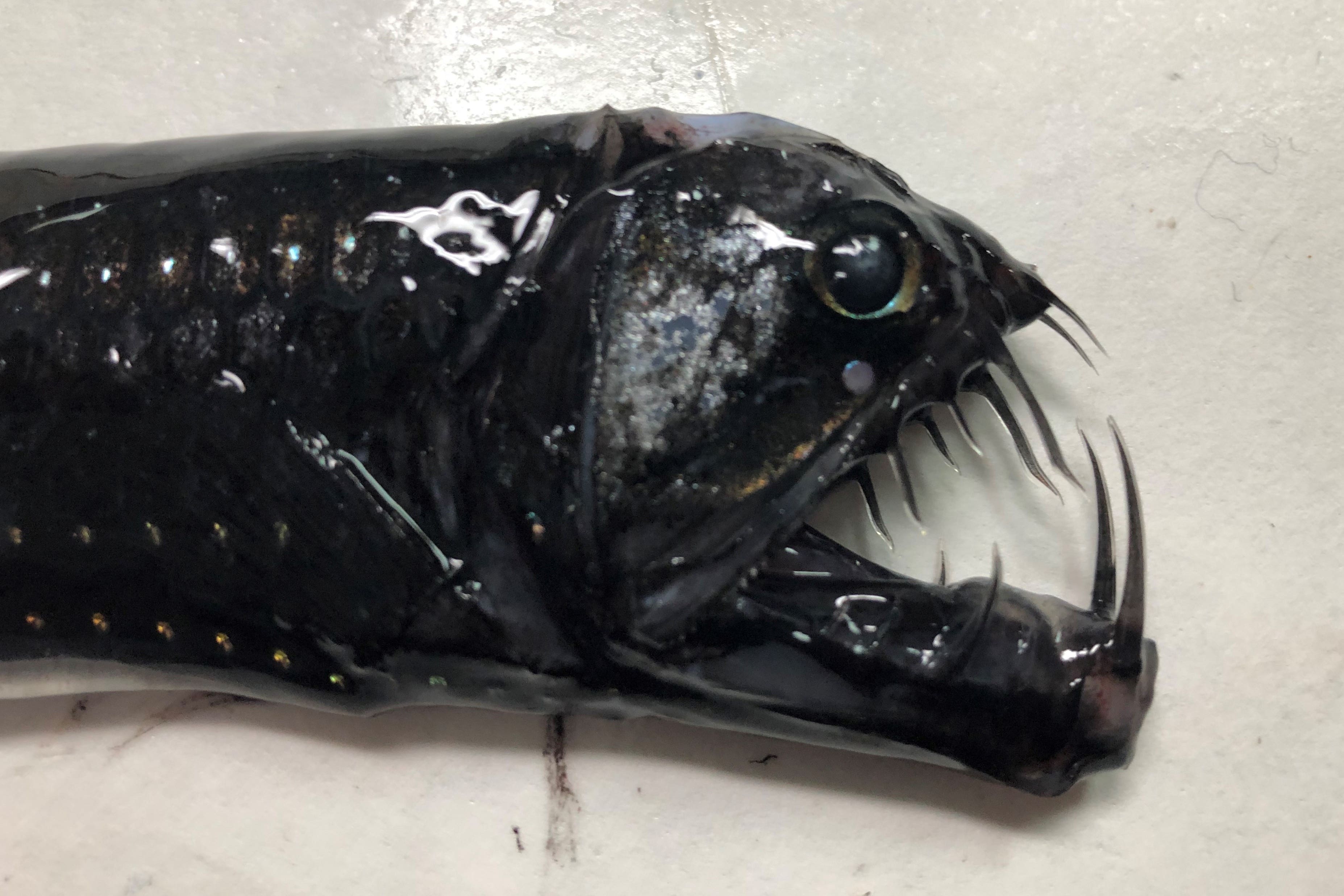Research ship on voyage of discovery to South Atlantic Ocean
The RRS Discovery will set sail for Ascension Island and St Helena in the search for new species on the seabed.

Your support helps us to tell the story
From reproductive rights to climate change to Big Tech, The Independent is on the ground when the story is developing. Whether it's investigating the financials of Elon Musk's pro-Trump PAC or producing our latest documentary, 'The A Word', which shines a light on the American women fighting for reproductive rights, we know how important it is to parse out the facts from the messaging.
At such a critical moment in US history, we need reporters on the ground. Your donation allows us to keep sending journalists to speak to both sides of the story.
The Independent is trusted by Americans across the entire political spectrum. And unlike many other quality news outlets, we choose not to lock Americans out of our reporting and analysis with paywalls. We believe quality journalism should be available to everyone, paid for by those who can afford it.
Your support makes all the difference.A British research ship is setting sail on a 9,000-mile expedition to the South Atlantic Ocean to survey previously unexplored depths and search for unknown species.
The Royal Research Ship (RRS) Discovery is set to sail on Thursday from Southampton, Hampshire, for the six-week voyage to the remote British Overseas Territories of Ascension Island and St Helena.
Sailing as part of the UK Government’s Blue Belt Programme – an international maritime conservation scheme, scientists on board the Discovery will use underwater cameras to explore hydrothermal vents on the 4,000 metre-deep (13,123ft) seabed.
The team expects to encounter a range of marine wildlife including such fish as inflated rattails, viper fish and common fangtooth, which were identified on previous trips. They also hope to find previously unknown species.
St Helena and Ascension have been chosen for the mission as they are home to two of the world’s largest Marine Protected Areas and host a variety of species, such as whale sharks, yellowfin tuna, humpback whales and green turtles.
The survey will gather data to enhance scientific understanding of the unique marine environment.
They will also take water samples to monitor quality and properties and will also assess the number of species key to local fisheries to inform sustainable management quotas.
The team will also monitoring human activities, such as illegal fishing in the protected waters.
Paul Whomersley, scientific lead for Discovery 159, at Centre for Environment, Fisheries and Aquaculture Science (Cefas), said: “Globally only around 5% of the oceans have been explored, at a time when it’s never been more important that they are protected.
“This latest Discovery expedition provides a new opportunity to advance scientific understanding of some of the most remote and unexplored areas of ocean on our planet.
“Using the data collected and by growing our understanding of these biodiverse marine ecosystems, we can directly support Ascension and St Helena Governments in their work to sustainably manage their vast Marine Protection Zones.”
The team of 50 scientists and crew members will spend 60 days at sea onboard RRS Discovery – a 100-metre-long research vessel weighing 600 tonnes with facilities including a gym, mini cinema and cafeteria.
The ship contains dry and wet labs for scientists to store and analyse the samples collected, as well as state-of-the-art survey equipment such as deep-water cameras.
International Marine Minister Scott Mann said: “This vital expedition is using cutting-edge technology to explore untouched areas of the ocean and will potentially uncover rare species and habitats, allowing us to protect and enhance our marine biodiversity for the future.
“It demonstrates how our scientists are amongst the top in their field, and marks a crucial step forward in our mission to protect 30% of our international ocean by 2030, contributing to the global fight against climate change.”
Lord Goldsmith, Minister for Climate and Environment, said: “This is the latest example of British science leading the way in understanding and protecting our oceans for future generations.
“The knowledge the survey contributes will help us understand the abundance of rare species in need of our protection and I am incredibly excited to see what the scientists find.”